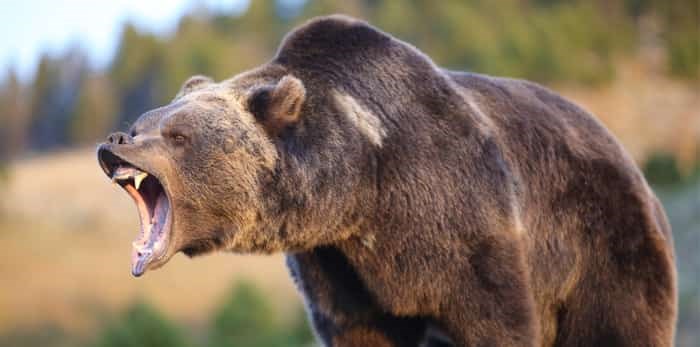While there are a number of ways to avoid running into wild animals, staying out of the wilderness certainly isn’t the most ideal one. Where is the fun in that?
With this in mind, many animals are dangerous, and people can end up seriously injured or even killed if they don’t exercise caution. As such, it is worth the effort to study which animals pose the greatest threat to people in B.C., and what to do when you encounter them.
Wild, powerful, and unpredictable, bears and cougars pose a substantial threat to people. Luckily, however, encounters between these animals and humans are relatively low in B.C. Nevertheless, you’ll want to be prepared for an encounter if you plan to venture into the woods anytime soon – or if you live in areas close to the wilderness.
Even if you are going on a hike, there are still a number of things that you can do to decrease your chances of running into an animal. For example, cougars and bears have been known to eat house pets, so leaving Fido at home may prevent him/her from being an easy meal. If you do bring your pet, ensure to keep it on a leash. Similarly, children are attractive to predators due to their size. As such, they shouldn’t wander off and should be supervised at all times.
Solo hiking is also not recommended; bears and cougars are far more likely to stalk a solo hiker than approach a group. And, even if you are in a group, it is imperative that you stay on designated trails and watch out for bear warnings.
Are there animals nearby?
BC Parks notes that if you see circling crows or smell rotting meat, you should leave immediately. Bears feed on dead animals and these may be signs that carrion is nearby. In addition, “Bear signs include: tracks, droppings, recently overturned rocks or logs, rotted wood that has been torn apart, clawed, bitten or rubbed trees, bear trails, hair on tree bark, fresh diggings and crushed vegetation.”
BC Parks also notes that tracks, droppings, scratched trees and food caches are signs that a cougar could be in the area. Cougars also urinate or defecate on piles of forest debris to mark their territory. These piles, called scrapes, also indicate the presence of cougars.
Campsite Cleanliness
It is imperative that you use airtight containers for things like fish, as fish odours strongly attract bears. Bears have an incredible sense of smell, so any packaged snacks, scented products, and contaminated dishwater should not lie around the camp. Instead, you should eat and cook well away from where you plan to sleep. Women should also consider using tampons when menstruating.
Store food and garbage in airtight containers in the facilities provided, or suspend it at least four metres above the ground, or store in the trunk of your car. You should also sleep in a tent, as sleeping under the stars is dangerous in bear country.
Think you can outrun a bear?
You won’t.
Adult grizzlies are capable of bursts of speed to 55 kilometres per hour, and, despite popular belief, bears can run downhill with ease. As a result, you shouldn’t run from bears, but stay calm and slowly back away. In addition, BC Parks states that you should not make eye contact with grizzly bears, as they may interpret it as a threat.
If a bear starts to follow you, you should drop something behind you as a distraction. While it may seem odd, a bear on its hind legs may not be aggressive – it may simply be trying to identify what you are. Speak softly to it and back away slowly.
It is also important to determine whether the animal is a black bear or a grizzly. If it’s a black bear, and its being aggressive, you should always fight back. This will mean jumping up and down, waving your arms and yelling. In addition, you should try to look as large as possible.
If it’s a grizzly, however, BC Parks says that you should climb a tree to over four metres if you can. If not, “assume the cannonball position on the ground. Lie in a fetal position on your side, with your knees against your chest and your head between your knees. Clasp your hands behind your neck. This position will show the bear that you are not aggressive, and will protect your vital organs in case of an attack.”
If the grizzly is exhibiting predatory behaviour, you should do everything you can to escape or fight back.
What do you if you encounter a cougar?
BC Parks states that you should remain calm and keep the cougar in view. Children should immediately be picked up, and you should slowly back away – but never turn your back to it. Also, the animal should have a clear avenue of escape.
You should try to make yourself look as large as possible, and if the cat shows intense interest or follows you, respond aggressively. You’ll want to maintain eye contact, show your teeth, and make noise. BC Parks adds that you should, “Arm yourself with rocks or sticks as weapons. Crouch down as little as possible when picking things up off the ground. If the cougar attacks, fight back.”
Ultimately, you’ve got to try to convince the cougar that you’re a threat, not prey.
For a more detailed list on what do to do when you encounter a predator, as well as how to spot tracks and determine the difference between grizzles and black bears, visit here.




